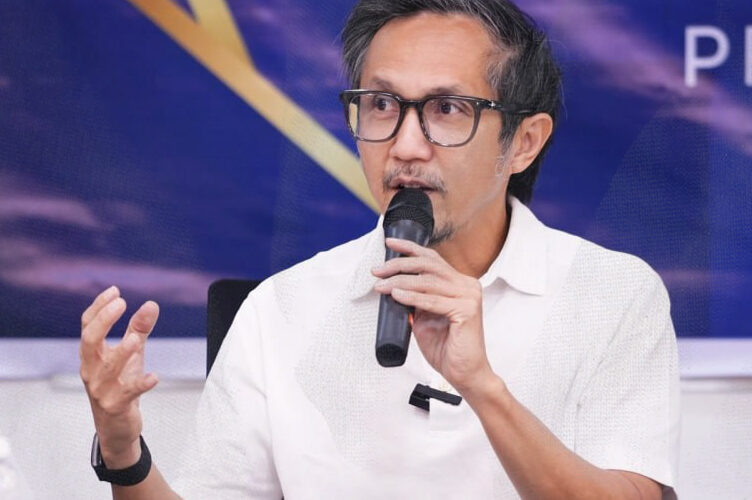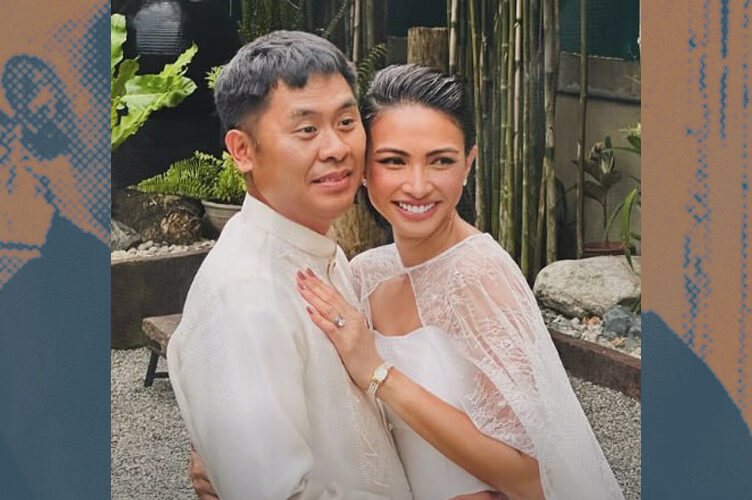“HI po.”
That’s it. That’s the whole message. If you’ve ever sent something like this to a professor, an expert, or anyone you’re hoping will say yes to your interview request, then congratulations— you’ve just joined the growing archive of messages that end up ignored, screenshotted, and if you’re really lucky, turned into cautionary tales on Facebook by the academics.
Lately, I’ve been seeing a lot of cases like these online. My feed feels like a running list of horror stories from professors swamped with vague, last minute, or overly casual interview requests— sometimes even bordering on insensitivity. Requests sent at odd hours demanding immediate replies. Messages with no context, no courtesy, no consideration for the fact that the person on the other end is, well, human.
If you’ve ever been guilty of this (or almost hit send on something similar), consider this your friendly intervention. Here’s how to ask properly—and why it matters more than you think.
The Biggest Mistakes
So… what exactly are we doing wrong?
Well, based on the countless posts I’ve seen from my professor and writer friends, here are some of the common mistakes Gen Zs make when requesting for an interview:
1. No proper greeting or introduction
Imagine getting a message that only says, “Hi po,” from a person you don’t know and have never met. In the age of social media, these types of messages can be anxiety-inducing. Anyone receiving this message would be left wondering. What now? What do you want? What am I supposed to do with this?
It’s not just unhelpful— it can actually create lowkey anxiety because it feels like an ominous lead-in to something urgent or heavy.
Some, who even jump straight into asking, don’t provide context or background about what they want from you. They just ask, “Puwede po ba kayo ma-interview?”
No name. No background. Not even a good day. This feels abrupt and impersonal— especially if you’re reaching out to someone you’ve never met. First impressions matter, and a simple greeting plus a quick self-introduction can go a long way in showing respect.
2. Lack of context
And, in relation to the first one— some of the professor’s biggest pet peeve is the lack of context. Vague messages like “Hi po, can we interview you?”— can leave them wondering: Who are you? What’s this for? Why are you asking me specifically?
As soon as you introduce yourself, the background of your interview must follow suit. You immediately state your course, the purpose of the interview, and the topic that you’ll be tackling with them.
Don’t put the burden on the interviewee to figure out what’s happening. Spoiler: most won’t bother to reply if they have to play detective.
3. Overly urgent or last minute requests
One of the biggest frustrations experts have when students request interviews is the overly urgent or last-minute approach.
The classic “Hi po, can we interview you later po? Kasi po deadline na,” is enough to send even the kindest professor into silent panic—or worse, straight to leaving you on seen.
Nothing says “I don’t value your time” like asking someone to drop everything for your project because you’re chasing your deadline. Remember, these experts are human too. They have work to do and prior commitments to honor. They have lives.
If you want experts to take you seriously (and actually reply), respect their time. Reach out early, clearly explain your purpose, and give them space to prepare.
If you’re asking for help, give them reasonable notice—ideally a week or two in advance.
4. Insensitive timing
Beyond the dreaded last-minute requests, there are also messages that land at 11 PM—sometimes on weekends, holidays, or, worse, during times when the expert is dealing with personal matters.
While students might see this as just “sending it now, so they’ll see it in the morning”, what it often feels like on the receiving end is a disregard for boundaries. Experts are people too. They deserve time to unplug, rest, and exist outside of work.
It might feel like “Wala namang masama mag-try,” but being mindful of timing is basic courtesy. Respecting their off-hours or busy periods shows you’re considering their well-being, not just your deadline.
It would be better to send messages and emails during the office hours. This usually starts at 8 am and ends at 5 pm.
5. Overfamiliarity
It’s great that Gen Zs are casual and confident online. But there’s a line.
Overfamiliarity can sometimes cross into unprofessional territory, especially when students reach out through inappropriate channels. While social media makes experts feel more accessible, Facebook DMs or Twitter replies are rarely the right place for formal requests—especially if the person you’re contacting doesn’t know you personally.
Unless the expert has explicitly stated that they welcome messages on social media, stick to email or official communication channels.
Also, starting a message like you’re DM-ing your tropa, using petnames, or being overly chummy with someone you don’t know can come off as unprofessional and even disrespectful.
Strike a balance: warm and polite, but still formal enough to show you’re serious.
How to ask for an interview
Now that we know what NOT to do, then it’s time we learn some proper etiquette.
First, one must use a professional email address to send a message. Email is considered the standard professional channel for a reason. Unlike personal social media accounts, email is designed for formal communication. It’s where experts expect to receive work-related inquiries like interview requests, making it less likely your message will get lost or ignored.
When you’re writing an email, you can follow this template:
- Introduce yourself properly and state your purpose immediately.
- Provide the important details upfront like your deadline, questions, and context.
Make sure to proofread your email before sending to avoid any miscommunication between you and the recipient.
If the recipient doesn’t answer immediately, respect their time and space. The ideal following up of email is at least one week after you have sent it. This, of course, may vary depending on the urgency of your project, but if you are going to follow it up, make sure that at least days have passed.
It’s also important to respect when someone says no—or even when they’re politely hinting at it. Not all experts will directly decline; sometimes they’ll say things like “I’m quite busy” or “Maybe next time” as a gentle way of turning down a request.
Instead of pushing or following up repeatedly, learn to read the room and accept their response with gratitude. Remember, their time is valuable, and being understanding leaves a much better impression than trying to insist.
A respectful thank you can go further than you expect— and who knows, they might be more open to saying yes in the future.
Why is this important?
Asking for an interview isn’t just about getting someone to answer your questions. It’s also about building respect, professionalism, and genuine connection.
When we approach experts carelessly or without basic etiquette, we risk presenting ourselves in a bad light and damaging our own credibility. This could have a domino effect that will make it difficult for future students to reach out to these professionals.
But when we reach out thoughtfully—being clear, polite, and considerate—we’re not just helping ourselves finish a project. We’re showing that we value the work, time, and boundaries of the people we’re learning from.
And honestly? That’s a life skill you’ll carry far beyond school.
How useful was this post?
Click on a star to rate it!
Average rating 5 / 5. Vote count: 1
No votes so far! Be the first to rate this post.
We are sorry that this post was not useful for you!
Let us improve this post!
Tell us how we can improve this post?







